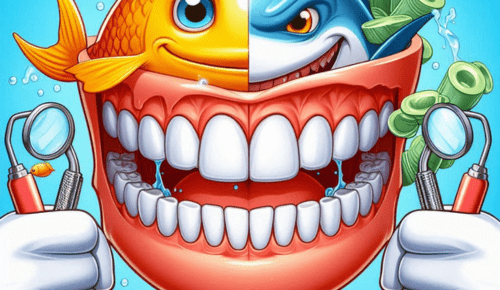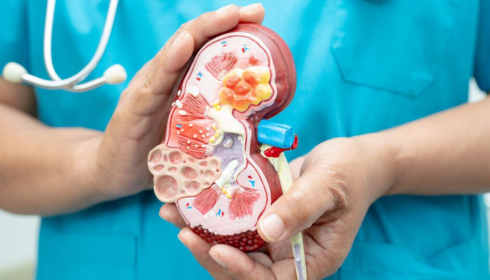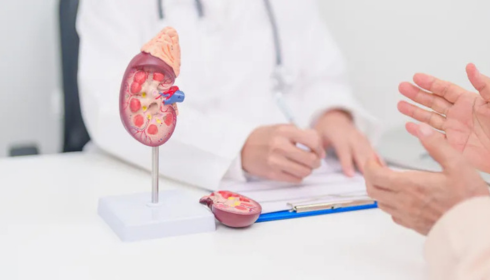
The Importance of Dental Cleaning and Prevention of Oral Diseases
Maintaining good oral health is essential for our overall well-being, and regular dental cleanings and prevention are crucial in achieving this goal. Individuals can benefit from a range of dental services designed to promote healthy teeth and gums. By prioritizing cleanings and prevention Little Elm, individuals can help prevent oral diseases, boost their confidence, and enjoy a healthier, happier smile.
In this article, we’ll explore the importance of dental cleanings and prevention, and provide valuable insights on how to maintain good oral health.
What is Dental Cleaning?
Dental cleaning, also known as prophylaxis, is a procedure that removes plaque, tartar, and stains from teeth. It is usually performed by a dental hygienist and is an essential part of oral health maintenance.
What Are The Benefits of Regular Dental Cleaning?
Regular dental cleaning has numerous benefits, including:
- Prevention of Oral Diseases: Regular dental cleaning can help prevent oral diseases such as tooth decay, gum disease, and oral cancer.
- Fresh Breath: Dental cleaning helps to remove bacteria and food particles that can cause bad breath.
- Boosted Confidence: A clean and healthy smile can boost confidence and self-esteem.
- Prevention of Systemic Diseases: Research has shown that there is a link between oral health and systemic diseases such as heart disease, diabetes, and Alzheimer’s disease.
- Cost Savings: Regular dental cleaning can help prevent costly dental procedures in the long run.
What Are Some Common Oral Diseases?
Some common oral diseases include the following:
- Tooth Decay (Caries): Tooth decay occurs when bacteria in the mouth break down food sugars, producing acid that damages tooth enamel.
- Gingivitis: Gingivitis is inflammation of the gums (gingiva) caused by poor oral hygiene, leading to redness, swelling, and bleeding.
- Periodontitis: Periodontitis is a bacterial infection of the gums and bone supporting the teeth, potentially leading to tooth loss.
- Oral Cancer: Oral cancer refers to cancerous growths in the mouth, including the lips, tongue, cheeks, and throat.
- Dry Mouth (Xerostomia): A dry mouth occurs when the salivary glands don’t produce enough saliva, leading to difficulties with swallowing, speaking, and chewing.
- Bad Breath (Halitosis): Bad breath is a persistent unpleasant mouth odor often caused by poor oral hygiene, gum disease, or dry mouth.
- Tooth Sensitivity: Tooth sensitivity occurs when the dentin (soft tissue beneath the enamel) is exposed, causing pain or discomfort when consuming hot or cold foods and drinks.
Prevention of Oral Diseases
Prevention is key when it comes to oral health. Here are some tips on how to prevent oral diseases:
- Brush and Floss Regularly: Brushing and flossing regularly can help remove plaque and bacteria that can cause tooth decay and gum disease.
- Use a Fluoride Toothpaste: Using fluoride toothpaste can help strengthen tooth enamel and prevent tooth decay.
- Limit Sugary and Acidic Foods: Limiting sugary and acidic foods can help prevent tooth decay and erosion.
- Visit Your Dentist Regularly: Regular dental check-ups can help detect oral health problems early on.
- Don’t Smoke: Smoking can increase the risk of oral cancer and gum disease.
What Are Some Effective Tips for Maintaining Good Oral Health?
Here are some effective tips for maintaining good oral health:
- Use a tongue scraper: Remove bacteria and debris from the surface of the tongue to freshen your breath and promote oral health.
- Avoid tobacco and nicotine products: These products can increase the risk of oral cancer, gum disease, and tooth decay.
- Wear a mouthguard: Protect teeth during sports and other activities that can cause mouth injuries.
- Stay hydrated: Drink plenty of water to keep the mouth moist and prevent dry mouth.
- Avoid using teeth as tools: Refrain from using teeth to open packages, bite nails, or perform other tasks that can damage teeth.
By making dental cleaning and prevention a priority, you’ll be investing in a lifetime of good oral health, overall wellness, and confidence.



